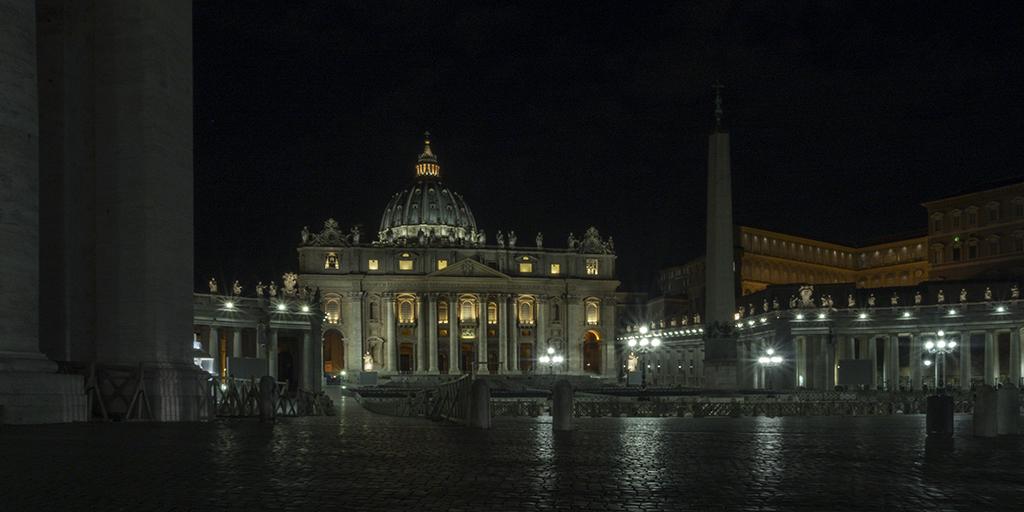
Malachy or Malachi?
As the conclave to select the next Roman Catholic pontiff begins, many Vatican-watchers are wondering: Where will Francis’ successor fit in the panorama of end-time prophecy? For centuries, each new pope has been eyed against a document known as the “Prophecy of St. Malachy,” first published in 1595—said to be the Irish monk Malachy’s twelfth-century vision of 112 men who would lead the Roman church, with each given a brief motto—often tied to a birthplace, heritage, or coat of arms—beginning with Celestine II in 1143 and ending with a man called Petrus Romanus, “Peter the Roman.”
Almost immediately upon publication, many saw that its mottos for popes before Urban VII (who died in 1590) were quite precise, while later mottos are often quite vague. From the start, many assumed the document was forged by someone promoting Cardinal Girolamo Simoncelli to succeed Pope Urban VII. Malachy gave Urban’s successor the motto “From the Old City”—a good fit for Simoncelli’s hometown of Orvieto, then known widely as “the Old City.” But the pope eventually elected, Gregory XIV, came from Somma Lombardo, a region not even recognized as a city until the twentieth century. So, even within a decade of publication, there was good reason to doubt the prophecy’s authenticity.
The next-to-last motto in the Malachy document, “Glory of the Olive,” allegedly corresponded to Pope Benedict XVI, who resigned the papacy in 2013 and died in 2022. After him, the descriptor for the final pope in the list—“Peter the Roman”—hardly fit Francis. Even when Francis took office in 2013, proponents were suggesting that Malachy allowed for additional unidentified popes who might serve between “Glory of the Olive” and “Peter the Roman.”
With Francis’ death, proponents of the Malachy text seized on a new angle. They point to its supposed discovery in 1585, 442 years after Celestine II took office, as the supposed mid-point between Malachy’s vision and the end of the world—counting 442 years after 1585 brings us to 2027. But students of God’s word know better. Scripture reveals the end-time prophetic sequence, with an abomination that “makes desolate” (Daniel 9:27) occurring 1,290 days before Christ returns. As of today, that abomination hasn’t occurred, and 1,290 days from now would bring us to November 2028. Our world may be in great turmoil in 2027, but it will not then come to an end. To learn more, please watch our informative Tomorrow’s World whiteboard on the topic.
Instead of pondering the dubious Malachy prophecy, Vatican-watchers may want to consider the words of the biblical prophet Malachi, who offered this rebuke: “The lips of a priest should keep knowledge, and people should seek the law from his mouth; for he is the messenger of the Lord of hosts” (Malachi 2:7). The Roman church has established a corpus of what it calls “canon law”—but is it truly God’s law? Or has the Roman church established much law that not only is absent from Scripture, but is actually contrary to Christ’s teachings?
Malachi reminds us of God’s powerful words: “I am the Lord, I do not change” (Malachi 3:6). Would an unchanging God change something as fundamental as His Sabbath, kept and taught by Christ and His disciples? Would He mandate celibacy for His priesthood, after setting the example of appointing married apostles?
This is not a mere academic question; it involves our destiny as Christians. What is the consequence of “getting it right” and obeying Christ’s commands? Malachi describes God’s plans for those who love Him and keep His commandments (1 John 5:3). “‘They shall be Mine,’ says the Lord of hosts, ‘on the day that I make them My jewels. And I will spare them as a man spares his own son who serves him.’ Then you shall again discern between the righteous and the wicked, between one who serves God and one who does not serve Him” (Malachi 3:17–18). What a glorious destiny for those who yield to Christ and serve God in the way He intended!
To learn more, we invite you to read our inspiring study guide The World Ahead: What Will It Be Like? You can read it online or order a free printed copy.
Stay up to date with our Weekly Digest Email!
Tomorrow's World ComMentary Podcast
Subscribe to Tomorrow's World Commentary podcasts on iTunes and Google Play!



